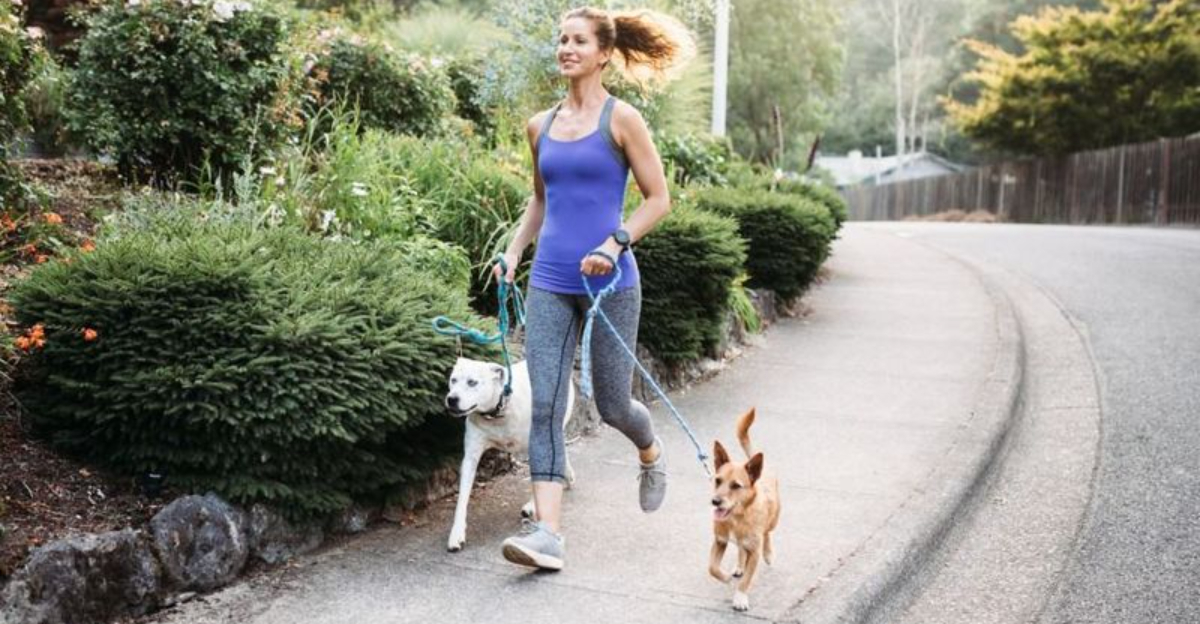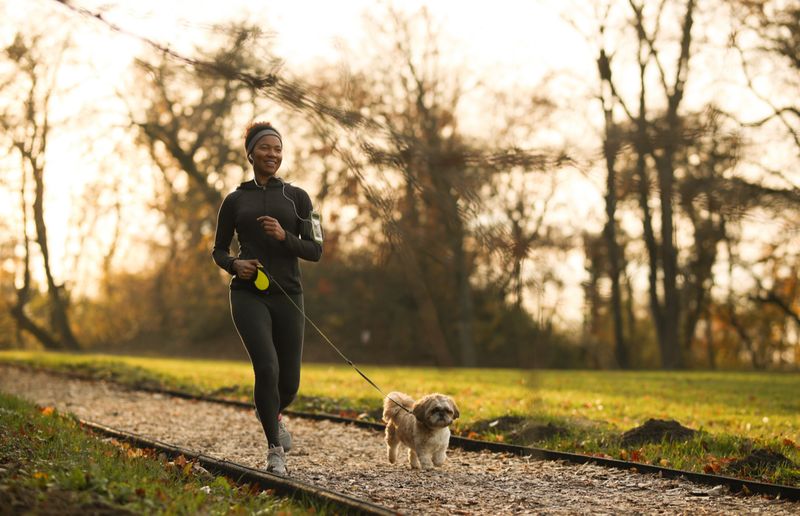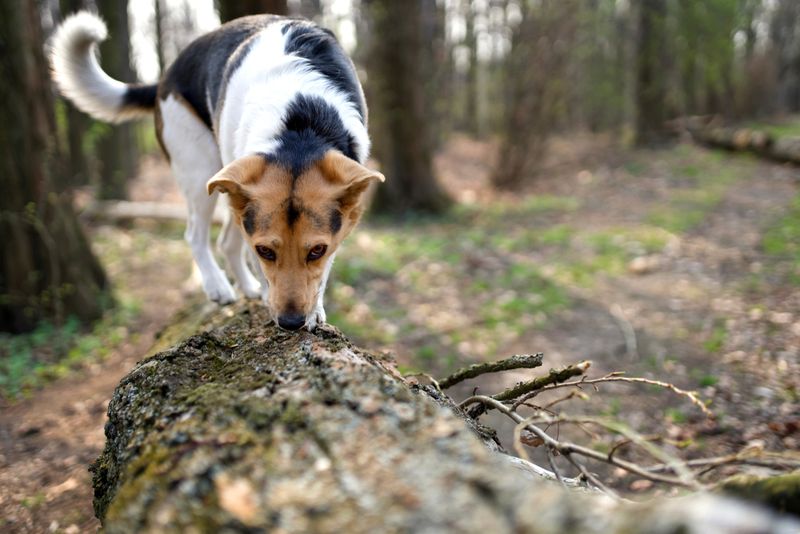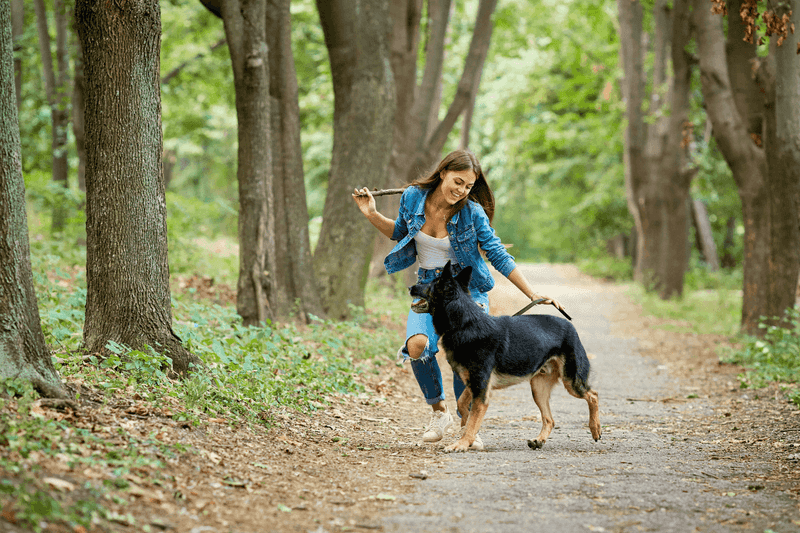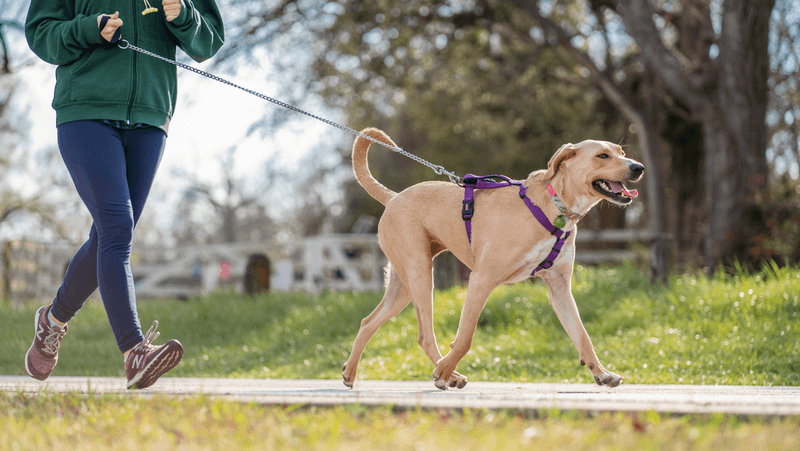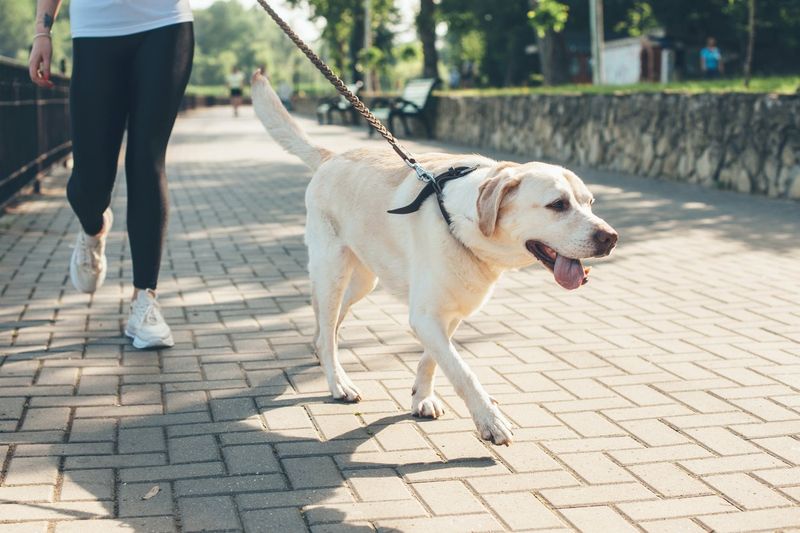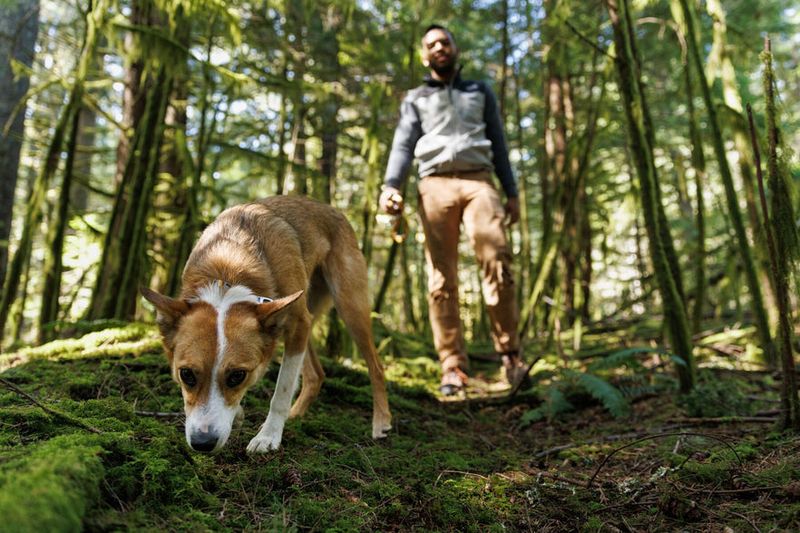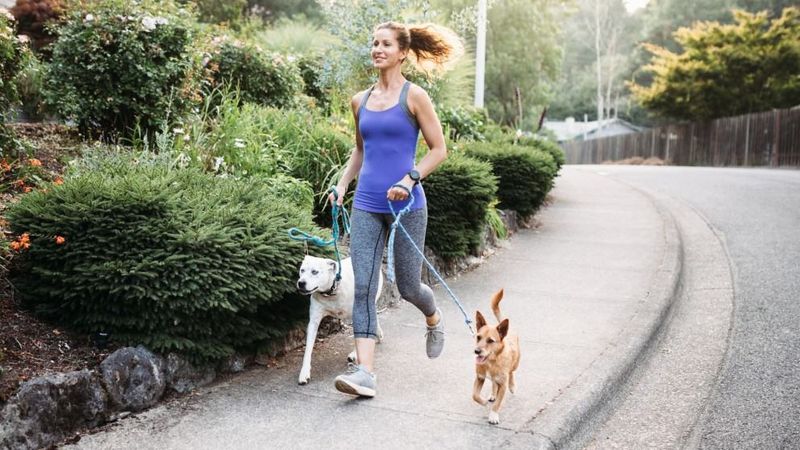Walking your dog is more than just a daily chore; it’s a vital aspect of their overall health and well-being. Regular walks not only provide physical exercise but also mental stimulation, socialization opportunities, and behavioral benefits. Here’s a detailed look at why walking your dog is essential for their health.
Physical Fitness
Walking keeps your dog in shape and prevents obesity. Regular walks help maintain a healthy weight, crucial for avoiding diabetes, arthritis, and heart disease. Exercise strengthens muscles and supports joint health. Varying the pace during walks can enhance cardiovascular fitness, helping your furry friend stay lively and energetic. Consider the benefits of nature. Outdoor walks engage muscles differently than confined spaces, providing varied terrain for paw-friendly exercise. Keep your dog’s fitness regimen consistent but adaptable. Different breeds require different exercise levels, so tailor walks to your dog’s specific needs.
Mental Stimulation
Dogs rely heavily on their sense of smell. Walks offer them an array of scents to explore, stimulating their minds. A mental workout as important as physical exercise, sniffing strengthens their cognitive functions. Engaging with different environments sharpens their senses and reduces boredom. Boredom can lead to destructive behavior at home. Keep walks varied and exciting by changing routes and visiting new places. New experiences keep their minds sharp and happy. Mental stimulation is vital for their emotional well-being and enhances their quality of life.
Socialization Opportunities
Walking your dog introduces them to various social settings. Meeting other dogs and people enhances their social skills, reducing anxiety and aggression. Socialization from a young age helps dogs understand acceptable behavior. Regular interactions during walks can lead to a calmer, more balanced pet. Such experiences teach dogs to cope with unfamiliar situations and stimuli. Social dogs are happier and less likely to develop fear-based issues. Consistent socialization can improve their adaptability and trust in new environments.
Behavioral Benefits
Regular walking helps reinforce good behavior. Structured walks instill discipline and reinforce commands. Dogs learn to focus on their handlers, improving obedience. Physical activity reduces hyperactivity and excessive barking. Dogs with pent-up energy often act out. A tired dog is typically more relaxed and well-behaved. Consistent walks create a routine that dogs thrive on. Routines build confidence and reduce anxiety. Walking is an opportunity to practice good manners in various environments, helping to shape a well-mannered pet.
Bonding Time
Walks provide quality bonding time between you and your dog. This shared experience strengthens your relationship, fostering trust and affection. Dogs crave companionship, and walking together fulfills that need. Consistent walks create shared memories and deepen your connection. Consider the walks as treasured moments to communicate and understand each other better. The routine offers stability and companionship. Dogs feel valued and loved, knowing you prioritize their health and happiness. Bonding promotes a happier and more satisfied pet.
Improved Digestion
Physical activity aids your dog’s digestion. Walking helps move food through their digestive tract efficiently, preventing constipation and bloating. Regular walks also stimulate appetite and enhance nutrient absorption. A healthy digestion contributes to overall energy and vitality. Consider the importance of routine. Eating and walking on a schedule helps regulate their digestive system. Dogs with smooth digestion are generally happier and more comfortable. Regular walks support a balanced and healthy lifestyle, reducing digestive issues.
Joint Health
Walking preserves joint health, especially crucial for older dogs. Regular movement lubricates joints and prevents stiffness, maintaining mobility. Exercise strengthens muscles around joints, offering support and reducing strain. Consider the impact of gentle, consistent walks. Adapt the pace to your dog’s age and health. Older dogs benefit immensely from low-impact exercise. Ensure their walks are comfortable and enjoyable. Joint health is essential for a long, active life. Keep your dog’s joints healthy with regular, mindful walks.
Stress Reduction
Walking helps reduce stress in dogs. Regular walks provide a change of scenery, promoting relaxation and calmness. Nature walks are particularly soothing, offering sensory experiences that alleviate anxiety. The rhythmic pace and fresh air contribute to their mental well-being. Consider the therapeutic benefits of a quiet environment. Dogs enjoy the peace and routine, providing comfort. Reduced stress leads to better overall health and behavior. Regular walks are a simple yet effective way to enhance their quality of life, reducing anxiety.
Weight Management
Walking plays a vital role in managing your dog’s weight. Regular exercise keeps excess pounds at bay, preventing obesity-related issues. Maintaining a healthy weight is crucial for longevity and quality of life. An active dog is a healthy dog, full of energy and zest. Consider the impact of a consistent routine. Dogs thrive on regular activity, supporting their metabolism. Weight management through walking reduces the risk of diabetes, heart disease, and joint problems. Regular walks transform your dog’s vitality and outlook.
Enhanced Mood
Walking boosts your dog’s mood. Exercise releases endorphins, enhancing their happiness and reducing stress. A well-exercised dog is often more content and less likely to exhibit destructive behavior. Regular walks provide a sense of purpose and routine, which dogs thrive on. Consider the impact of mental health. Physical activity elevates their spirits, making them more sociable and easygoing. A happy dog enriches the home with positivity and companionship. Daily walks are essential for maintaining their mental and emotional well-being.
Heart Health
Walking promotes a healthy heart by improving cardiovascular function. Regular exercise strengthens the heart muscle, increasing blood flow and oxygen levels. Dogs, much like humans, need routine exercise for heart health. Consider the long-term benefits. A strong heart leads to a longer, more active life. Walking reduces the risk of heart-related diseases, keeping your dog energetic and vibrant. Regular activity supports a healthier, more robust lifestyle. Heart health is fundamental to your dog’s overall well-being, and walking is a key contributor.
Increased Longevity
Consistent walking can increase your dog’s lifespan. Regular exercise promotes longevity by preventing obesity and associated diseases. Active dogs often live longer, healthier lives. Walking contributes to physical and mental wellness, essential for aging gracefully. Consider the gift of time. Walks offer opportunities for joy, exploration, and connection. The routine enhances their quality of life, providing purpose and fulfillment. Older dogs benefit immensely from gentle exercise, maintaining vitality. Walking is a simple yet effective way to prolong their companionship.
Improved Sleep
Walking leads to better sleep patterns for dogs. Regular exercise tires them out naturally, promoting deep, restful sleep. A well-exercised dog is less likely to be restless at night. Consider the impact on their daily rhythm. Consistent walks establish a routine that supports healthy sleep cycles. Dogs with proper exercise sleep soundly, waking up refreshed and energetic. Restful sleep enhances their overall well-being and mood. Walking is a natural way to ensure they get the rest they need, contributing to a balanced lifestyle.
Prevention of Boredom
Walks prevent boredom by offering new experiences and environments. Dogs are naturally curious and thrive on exploration. Regular walks present opportunities to discover scents, sights, and sounds. Engage their curiosity by varying routes and introducing novel stimuli. Consider the enrichment of their world. A stimulated dog is a happy dog. Boredom can lead to destructive behavior, but walking engages their mind and body. Regular exercise breaks monotony, fostering creativity and interest. Walking is a simple solution to keep them entertained and fulfilled.
